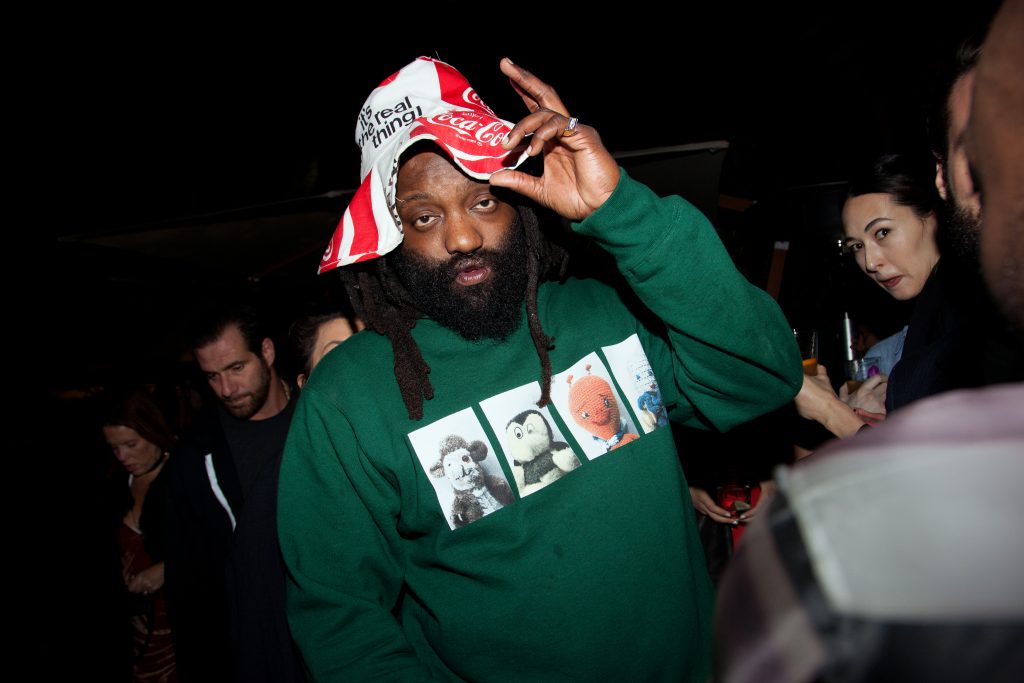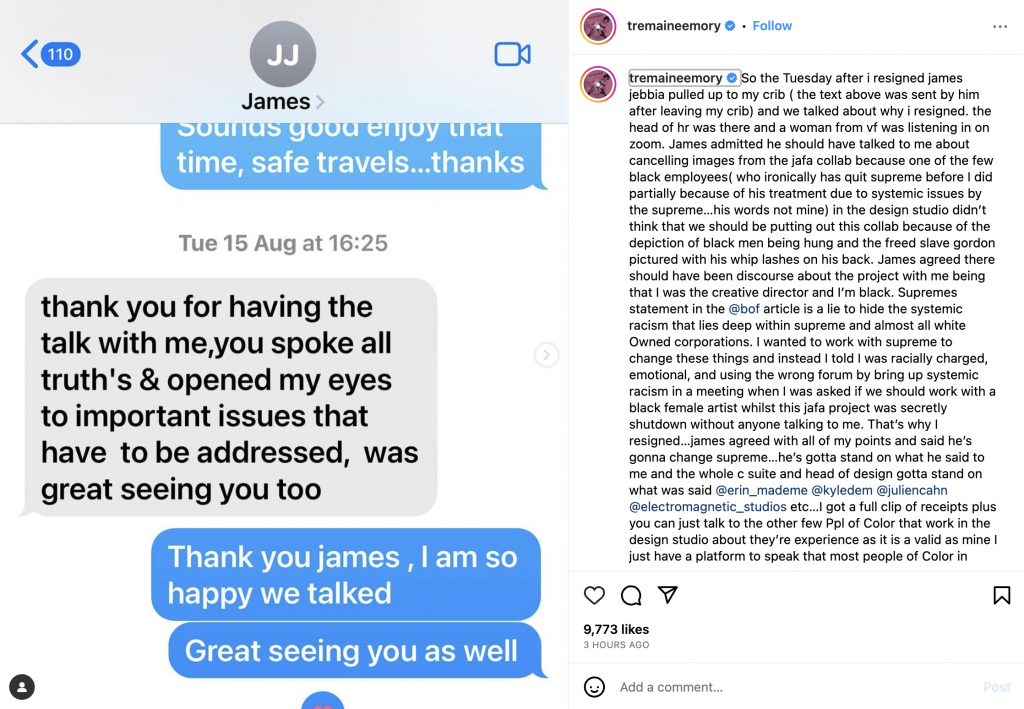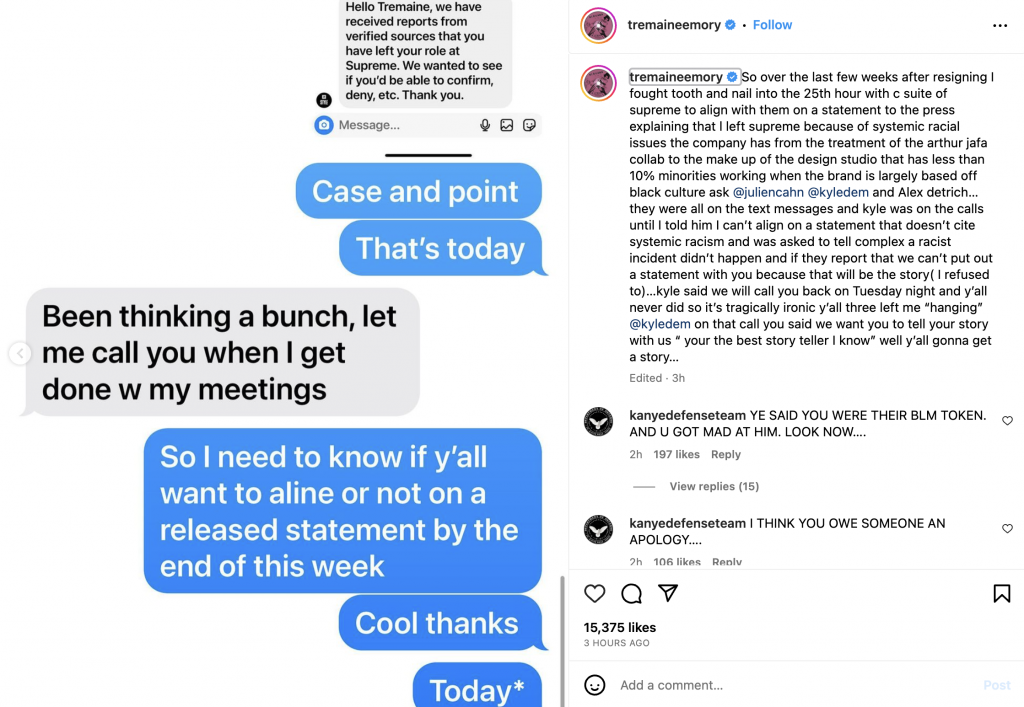Art World
Supreme’s Creative Director, Tremaine Emory, Has Resigned, Citing the ‘Distress’ Caused by a Nixed Collaboration With Artist Arthur Jafa
The designer also alleged "systemic racism" within the company fueled his departure.

The designer also alleged "systemic racism" within the company fueled his departure.

Min Chen

Designer Tremaine Emory has resigned from his post as creative director at Supreme, alleging “systematic racial issues” within the company and following a nixed collaboration with artist Arthur Jafa.
Emory joined the streetwear giant in February 2022, taking over the brand’s creative decision making from its founder, James Jebbia. In his resignation letter, obtained by Business of Fashion, Emory cited the management’s “inability to communicate” to him with “full visibility for the reasons behind” the dropping of the Jafa project. Supreme, however, has denied the collaboration was cancelled.
“This caused me a great amount of distress as well as the belief that systematic racism was at play within the structure of Supreme,” read Emory’s letter.
In an August 31 Instagram post, Emory shared screenshots of a text conversation he had with Jebbia after a meeting about the axed Jafa collaboration. His caption revealed that he was not consulted about the scrapping of the project, the images of which apparently involved, in Emory’s description, “depiction of Black men being hung and the freed slave Gordon pictured with his whip lashes on his back,” which troubled a Black studio employee.

Screenshot of Tremaine Emory’s August 31 Instagram port regarding his meeting with Supreme founder James Jebbia. Photo: @tremaineemory on Instagram.
Jebbia, in turn, conceded that “there should have been discourse about the project with me being that I was the creative director and I’m Black,” Emory continued.
He added that he was “told I was racially charged, emotional, and using the wrong forum by bring up systemic racism in a meeting when I was asked if we should work with a Black female artist whilst this Jafa project was secretly shut down without anyone talking to me.”
The exact nature of the conflict, including how the collaboration’s images were produced and why it was cancelled, remains unclear, however.
In an earlier post, Emory also revealed he was instructed by the “C suite of Supreme” to omit mentions of “systemic racism” and “a racist incident” regarding his departure, in response to inquires from Complex. He added that he had to fight “tooth and nail into the 25th hour” to align with the company on a statement.
Emory’s parting shot further highlighted that Supreme’s design studio is made up of “less than 10 percent minorities,” while the brand is “largely based off Black culture” (Supreme’s name, for one, is pulled from John Coltrane’s “A Love Supreme.”)

Screenshot of Tremaine Emory’s August 31 Instagram port regarding his efforts to align with Supreme on a statement about his departure. Photo: @tremaineemory on Instagram.
Artnet News has reached out to Supreme for comment, but did not receive a response at press time. In a statement to Business of Fashion, the company said: “While we take these concerns seriously, we strongly disagree with Tremaine’s characterization of our company and the handling of the Arthur Jafa project, which has not been cancelled.”
“This was the first time in 30 years where the company brought in a creative director,” its statement continued. “We are disappointed it did not work out with Tremaine and wish him the best of luck going forward.”
Jafa did not immediately respond to requests for comment.
Supreme’s Fall/Winter 2023 collection will be the last one under Emory’s creative direction.
Emory was already well established in streetwear circles prior to joining Supreme, having founded his own label, Denim Tears, in 2019, and worked with the late Virgil Abloh and Ye (before a fall-out with the rapper last year). In his work, the designer has long aimed to center his “African American vision” as a way to “drench [people] in the Black gaze.”
“Denim Tears,” he described in a 2021 interview, “is like Supreme for Black people and anyone else who wants to celebrate or commemorate what we’ve been through.”